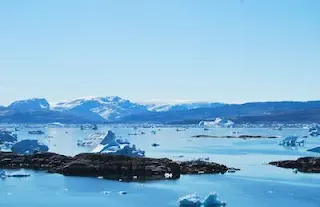Climate Change: Causes and Effects
Introduction:
Climate change has emerged as one of the most pressing challenges facing humanity in the 21st century. It refers to long-term shifts in temperature patterns and weather conditions across the Earth's surface, primarily caused by human activities. This essay aims to explore the causes and effects of climate change, highlighting the significant impact it has on our planet and future generations.
Causes of Climate Change
Greenhouse Gas Emissions: The primary driver of climate change is the excessive emission of greenhouse gases (GHGs) into the atmosphere. Human activities such as burning fossil fuels (coal, oil, and natural gas), deforestation, and industrial processes release carbon dioxide (CO2), methane (CH4), and nitrous oxide (N2O) into the atmosphere, trapping heat and leading to global warming.
Deforestation: The widespread clearance of forests for agriculture, urbanization, and logging contributes to climate change. Trees play a crucial role in absorbing CO2 through photosynthesis. When forests are destroyed, the stored carbon is released back into the atmosphere, intensifying the greenhouse effect.
Industrialization: The rapid industrial growth witnessed in recent decades has increased the emission of GHGs. Manufacturing processes, power generation from fossil fuels, and transportation systems release substantial amounts of CO2, CH4, and N2O into the atmosphere, amplifying global warming.
Agricultural Practices: Modern agricultural practices, including livestock farming and the use of synthetic fertilizers, contribute to climate change. Livestock emits significant amounts of methane, a potent greenhouse gas, while nitrogen-based fertilizers release N2O, further exacerbating the greenhouse effect.
Effects of Climate Change
Rising Temperatures: Global warming caused by climate change leads to rising temperatures worldwide. This results in more frequent and intense heatwaves, causing heat-related illnesses and deaths. It also disrupts ecosystems, affects agricultural productivity, and leads to the melting of polar ice caps and glaciers.
Extreme Weather Events: Climate change increases the frequency and intensity of extreme weather events such as hurricanes, storms, floods, and droughts. These events pose significant risks to human lives, infrastructure, and ecosystems, leading to displacement, economic losses, and food shortages.
Sea-Level Rise: The warming of the planet causes the melting of glaciers and ice sheets, contributing to rising sea levels. This puts coastal areas and low-lying islands at risk of flooding and erosion, displacing millions of people and endangering coastal ecosystems.
Biodiversity Loss: Climate change threatens global biodiversity, leading to species extinction and ecosystem disruptions. Rising temperatures, altered rainfall patterns, and habitat loss affect the distribution and behavior of plant and animal species, disrupting ecological balance.
Health Impacts: Climate change has profound implications for human health. Increased heatwaves and changing disease patterns, such as the spread of vector-borne diseases like malaria and dengue, pose significant risks. Air pollution associated with climate change also contributes to respiratory illnesses and other health issues.
Conclusion:
Climate change is an urgent global challenge that requires immediate attention and action. The causes, primarily driven by human activities, are leading to far-reaching and detrimental effects on the environment, ecosystems, and human well-being. Addressing climate change demands collaborative efforts, including reducing greenhouse gas emissions, transitioning to clean and renewable energy sources, adopting sustainable agricultural practices, and preserving forests and biodiversity. Only through concerted action can we mitigate the causes and effects of climate change, ensuring a sustainable and habitable planet for future generations.



